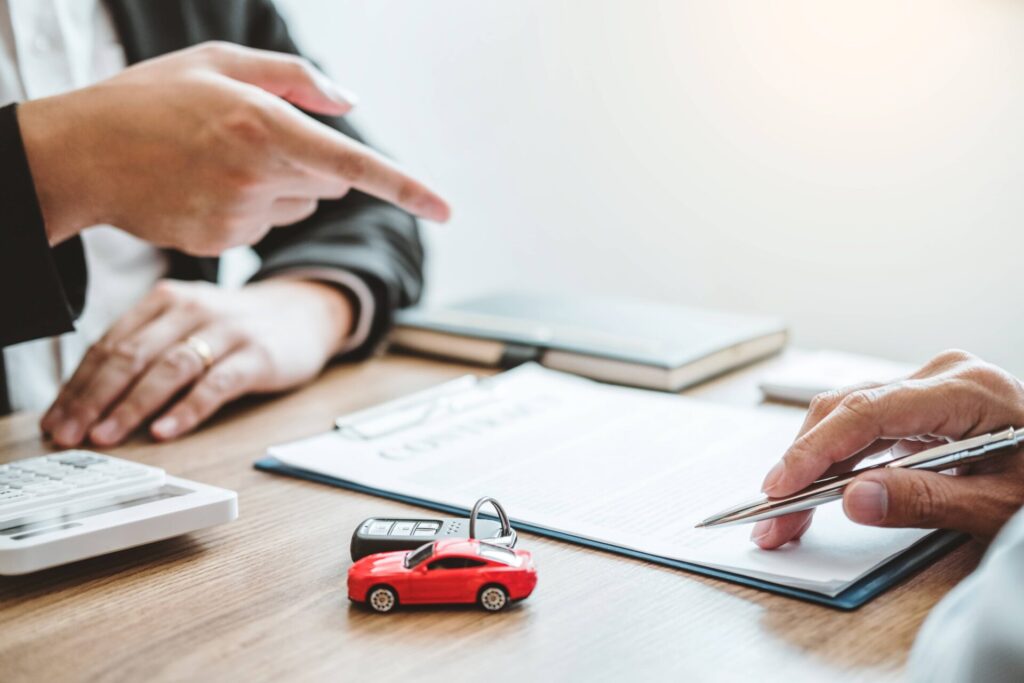The Importance of Protecting Your Leased Vehicle
If you’re considering leasing a car, it’s important to understand the different types of insurance available to you. Car lease insurance is a specific type of insurance designed for those who lease vehicles rather than owning them outright. In this article, we will define what car lease insurance is, discuss its importance, and outline the objectives of this article.
Definition of Car Lease Insurance
Car lease insurance is a type of insurance coverage that is specifically designed for leased vehicles. It is different from regular car insurance in that it takes into account the unique risks associated with leasing a vehicle rather than owning it outright.
Importance of Having Car Lease Insurance
Having car lease insurance is important because it protects you from financial losses that may result from accidents or other incidents involving your leased vehicle. Without insurance, you may be responsible for paying for damages out of pocket, which can be costly.
Objective of the Article
The objective of this article is to provide you with a comprehensive understanding of car lease insurance. We will cover everything from what car lease insurance is and how it works to tips for choosing the right insurance provider and policy. By the end of this article, you’ll have all the information you need to make an informed decision about car lease insurance.
Read More: Cheapest Car Insurance for Young Drivers
Understanding Car Lease Insurance

Car lease insurance is a specific type of insurance designed for those who lease vehicles rather than owning them outright. It is important because it protects you from financial losses that may result from accidents or other incidents involving your leased vehicle. Let’s take a closer look at the different aspects of car lease insurance.
What is Car Lease Insurance, and Why is it Important?
Car lease insurance is designed to protect leased vehicles from damage or loss due to accidents or other incidents. It is important because it can help cover the costs associated with repairing or replacing a leased vehicle. Without car lease insurance, you may be responsible for paying these costs out of pocket, which can be expensive.
Different Types of Car Lease Insurance
There are two main types of car lease insurance: gap insurance and lease-end insurance.
- Gap Insurance: Gap insurance covers the difference between the actual value of a leased vehicle and the amount you still owe on it. This can be helpful if your leased vehicle is stolen or totaled in an accident, as it can help cover the difference between what you owe on the vehicle and its actual value.
- Lease-End Insurance: Lease-end insurance is designed to protect you from lease-end charges, such as excessive wear and tear, missing equipment, and excess mileage. This type of insurance can be helpful if you’re concerned about being charged at the end of your lease.
What Does Car Lease Insurance Cover?
Car lease insurance typically covers the following:
- Collision damage: This covers damage to your leased vehicle in the event of an accident.
- Comprehensive coverage: This covers damage to your leased vehicle from things like theft, vandalism, or natural disasters.
- Liability coverage: This covers damage to other people or property in the event of an accident.
- Personal injury protection: This covers medical expenses for you and your passengers in the event of an accident.
How is Car Lease Insurance Different from Regular Car Insurance?
Car lease insurance is different from regular car insurance in that it is specifically designed to meet the unique needs of leased vehicles. Regular car insurance may not provide enough coverage for a leased vehicle and may not cover specific lease-end charges. Additionally, car lease insurance is typically more expensive than regular car insurance due to the increased risks associated with leasing a vehicle.
Factors Affecting Car Lease Insurance

When it comes to car lease insurance, there are numerous factors that can affect the cost of your insurance premiums. Let’s take a closer look at these factors.
The Make and Model of the Leased Vehicle
The make and model of the leased vehicle can have a significant impact on the cost of car lease insurance. More expensive vehicles may require more comprehensive coverage, which can be more expensive. Similarly, vehicles with a higher likelihood of theft or damage may also be more expensive to insure.
The Duration of the Lease
The duration of the lease can also impact the cost of car lease insurance. Longer leases may require more comprehensive coverage, as there is a higher likelihood of incidents occurring over a longer period of time. Additionally, longer leases may require additional coverage for wear and tear, which can increase the cost of insurance.
Your Driving Record
Your driving record can also affect the cost of car lease insurance. Drivers with a history of accidents or violations may be considered high-risk and may be required to pay higher insurance premiums. On the other hand, drivers who have a clean driving record may qualify for lower car lease insurance premiums. This is because insurance providers generally view these drivers as lower risk, and as a result, they may offer lower premiums. It’s important to maintain a good driving record to take advantage of these potential savings.
Your Credit Score
Your credit score can also impact the cost of car lease insurance. Insurance providers may view individuals with a lower credit score as higher risk and may require them to pay higher insurance premiums.
Location and Mileage
Finally, your location and mileage can also impact the cost of car lease insurance. Individuals who live in areas with a high rate of accidents or theft may be required to pay higher insurance premiums. Additionally, individuals who drive long distances may be considered higher risk, as they are more likely to be involved in accidents.
Comparing Car Lease Insurance Rates

When it comes to car lease insurance, it’s important to compare rates to ensure that you’re getting the best protection at the best price. Let’s take a closer look at how to compare car lease insurance rates.
Factors to Consider When Comparing Car Lease Insurance Rates
When comparing car lease insurance rates, there are several factors to consider. These include:
- Coverage levels: Make sure that you’re comparing policies with similar coverage levels.
- Deductibles: Check the deductibles for each policy to make sure that you’re comparing apples to apples.
- Insurance company: Look at the insurance company’s reputation, customer service, and financial stability.
- Discounts: Check to see if you’re eligible for any discounts, such as safe driver discounts or multi-policy discounts.
How to Get the Best Car Lease Insurance Rate
To get the best car lease insurance rate, consider the following:
- It’s important to shop around and compare rates from multiple car lease insurance providers before making a decision. Avoid settling for the first policy you come across, as it may not provide the best coverage at the best price. By taking the time to compare rates and coverage options, you can find the right policy for your needs and budget.
- Bundle policies: Consider bundling your car lease insurance with other insurance policies, such as renters or homeowners insurance.
- Consider a higher deductible: If you’re happy with a higher deductible, you may be able to lower your insurance premiums.
- Ask for discounts: Ask your insurance provider if you’re eligible for any discounts.
How to Determine the Right Level of Coverage for Your Leased Vehicle
When it comes to determining the right level of coverage for your leased vehicle, consider the following:
- The value of your leased vehicle: Consider the actual cash value of your leased vehicle and choose coverage that will adequately protect it.
- Your lease agreement: Review your lease agreement to ensure that you’re meeting all of the requirements for insurance coverage.
- Your driving habits: Consider your driving habits and choose a coverage that will adequately protect you in the event of an accident. If you frequently drive long distances or in high-risk areas, you may need more comprehensive coverage.
Car Lease Insurance vs. Other Insurance Options

When it comes to insuring your leased vehicle, there are several options available to you. Let’s take a closer look at the differences between car lease insurance, gap insurance, and regular car insurance.
Understanding the Differences Between Car Lease Insurance, Gap Insurance, and Regular Car Insurance
Car lease insurance is a type of insurance specifically designed for leased vehicles. It provides coverage for incidents that may occur while you’re leasing the vehicle. Gap insurance, on the other hand, covers the difference between the actual value of a leased vehicle and the amount you still owe on it. Finally, regular car insurance covers vehicles that you own outright.
Benefits of Car Lease Insurance Over Other Insurance Options
One of the main benefits of car lease insurance over other insurance options is that it is specifically designed for leased vehicles. This means that it can provide more comprehensive coverage for the unique risks associated with leasing a vehicle. Additionally, car lease insurance can provide coverage for lease-end charges, which can be a concern for some lessees.
When is it Appropriate to Opt for Gap Insurance Instead of Car Lease Insurance?
Gap insurance may be appropriate in situations where you owe more on your leased vehicle than it is worth. This can occur if you have made a small down payment or have chosen a long-term lease. Gap insurance can help protect you from financial losses in the event of a total loss or theft of your leased vehicle. However, it’s important to note that gap insurance does not provide coverage for incidents that may occur while you’re leasing the vehicle, which is where car lease insurance comes in.
Everything You Need to Know About Car Lease Insurance

Tips for Choosing Car Lease Insurance
Choosing the right car lease insurance provider and policy is important to ensure that you’re adequately protected in the event of an accident or other incident involving your leased vehicle. Let’s take a closer look at some tips for choosing car lease insurance.
Factors to Consider When Choosing a Car Lease Insurance Provider
When choosing a car lease insurance provider, consider the following factors:
- Reputation: Look for an insurance provider with a good reputation for customer service and claims processing.
- Financial stability: Choose an insurance provider with a strong financial rating to ensure that they will be able to pay out claims.
- Coverage options: Make sure that the insurance provider offers the type of coverage you need for your leased vehicle.
- Discounts: Look for an insurance provider that offers discounts for safe driving, multi-policy bundling, or other factors.
- Cost: Consider the cost of the insurance policy and compare it to other options to ensure that you’re getting the best deal.
How to Ensure That You Are Adequately Covered
To ensure that you are adequately covered with your car lease insurance policy, consider the following:
- Review your lease agreement: Make sure that you understand the insurance requirements outlined in your lease agreement and choose a policy that meets those requirements.
- Consider your driving habits: Choose a coverage that will adequately protect you in the event of an accident or other incident. Consider factors such as your driving record, location, and mileage when choosing coverage levels.
- Review your policy regularly: Review your car lease insurance policy regularly to ensure that it still meets your needs and that you’re not paying for coverage you don’t need.
Common Mistakes to Avoid When Selecting Car Lease Insurance
When selecting car lease insurance, avoid the following common mistakes:
- Avoid settling for the first car lease insurance policy you come across. Take the time to shop around and compare rates and coverage options from multiple providers before making a decision. This way, you can find the best coverage at the best price and ensure that you’re getting the most value for your money.
- Not understanding your lease agreement: Make sure that you understand the insurance requirements outlined in your lease agreement to avoid gaps in coverage.
- Choosing the cheapest option: While it’s important to consider cost when choosing car lease insurance, don’t choose the cheapest option if it doesn’t provide adequate coverage. Choose a policy that meets your needs and fits your budget.
Protect Your Investment with the Right Car Lease Insurance
Car lease insurance is an important consideration for those who lease vehicles rather than owning them outright. It provides coverage for incidents that may occur while you’re leasing the vehicle and can help protect you from financial losses associated with those incidents.
In this article, we’ve defined what car lease insurance is, discussed its importance, and outlined the different types of car lease insurance. We’ve also looked at the factors that can affect car lease insurance rates, how to compare car lease insurance rates, and how to choose the right car lease insurance policy.
When it comes to choosing car lease insurance, it’s important to shop around, understand your lease agreement, and choose a policy that meets your needs and fits your budget. By doing so, you can ensure that you’re adequately covered in the event of an accident or other incident involving your leased vehicle.
In conclusion, car lease insurance is an essential part of leasing a vehicle, and it’s important to choose the right coverage to protect yourself and your investment. By following the tips outlined in this article, you can make an informed decision about car lease insurance and ensure that you’re getting the coverage you need at a price you can afford.
